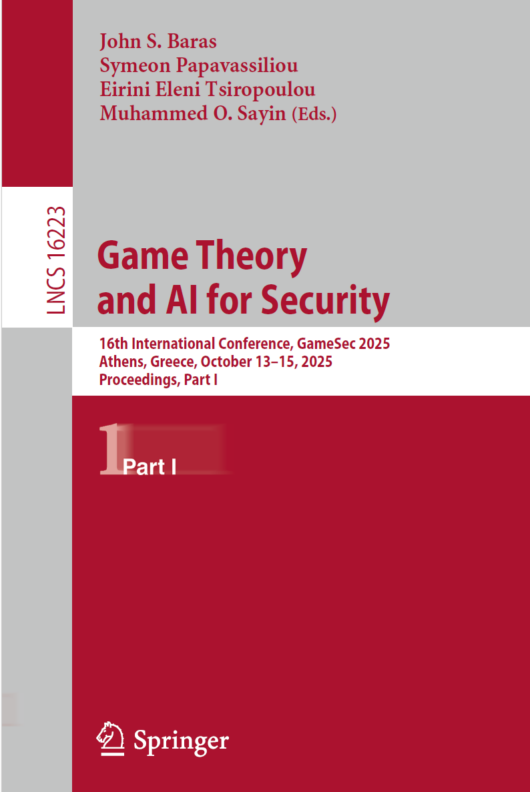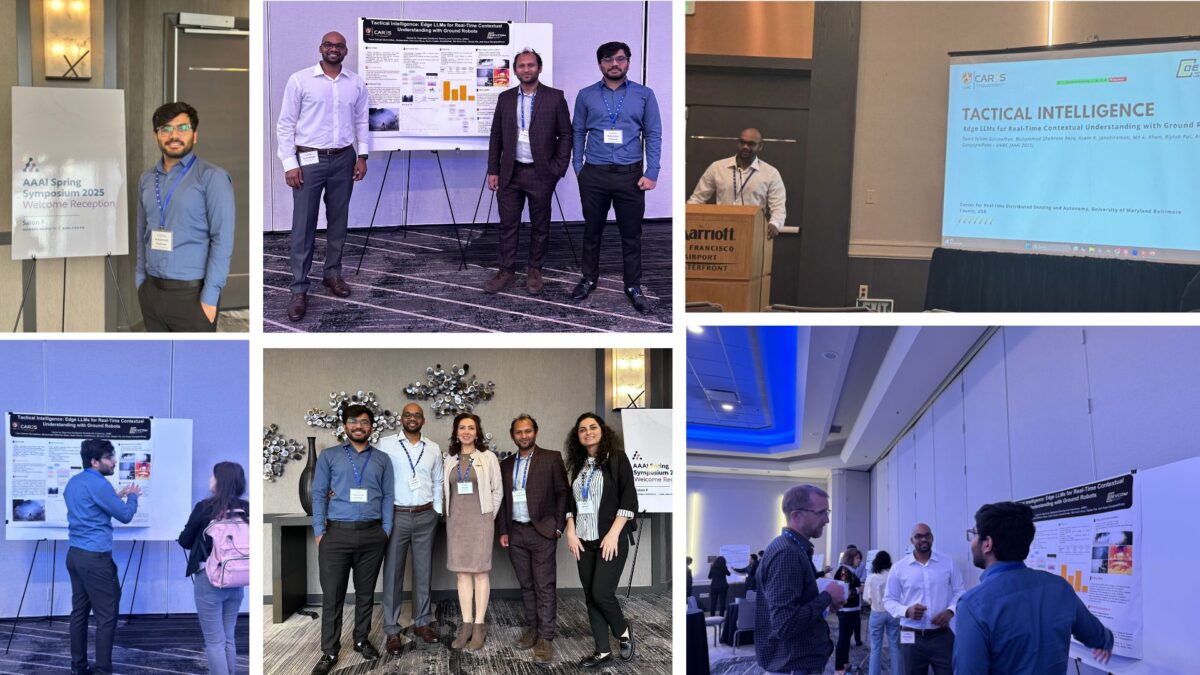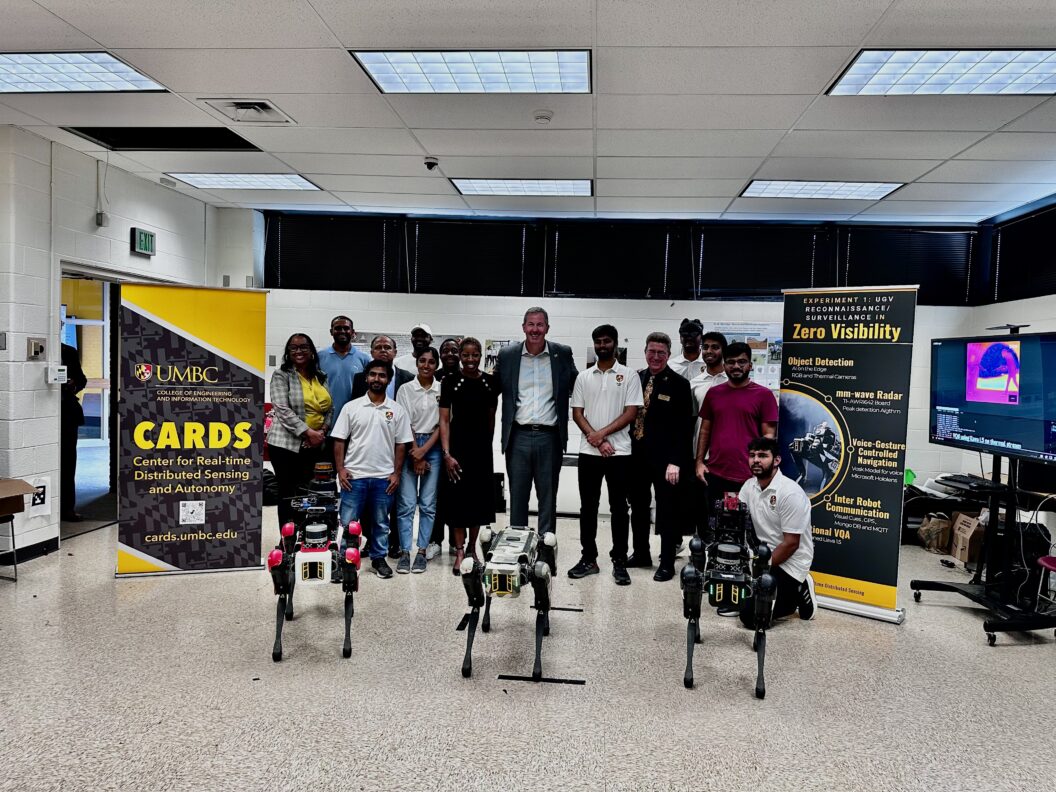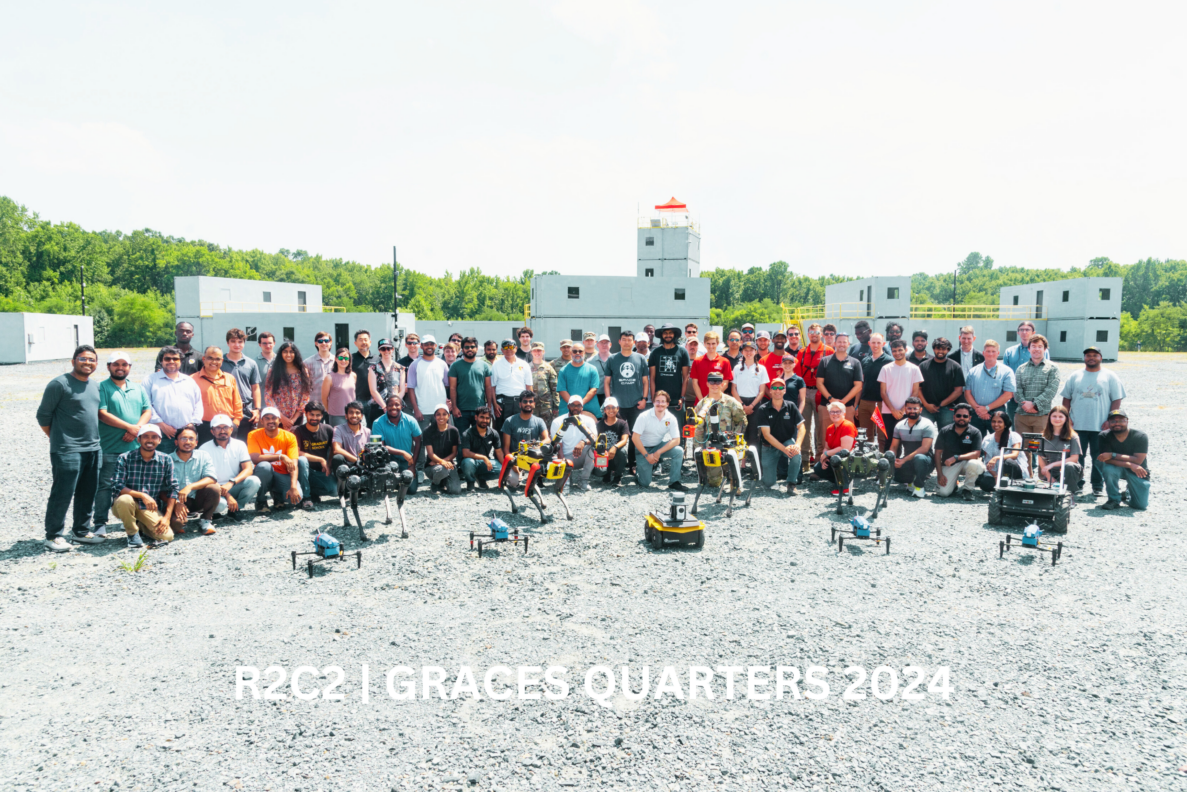Vision
The vision of this center is to advance AI-based autonomy in order to deliver safe, effective, and resilient new capabilities across a variety of complex mission types, including search-and-rescue, persistent surveillance, managing, adapting and optimizing smart, connected robots and machinery, and augmenting humans in performing complex analytical and decision-making tasks. These systems are continually getting better, but to achieve their potential, there are still numerous developments required to improve their capability, command and control, interoperability, resiliency and trustworthiness.
Motivation
The main motivation behind advancing AI-based autonomy is to leverage technology’s transformative potential. Through autonomous systems in tasks like search-and-rescue and surveillance, safety can be improved by minimizing human risk. Humanitarian concerns drive the vision, as these systems can aid in disaster response and crisis management. Tackling complexity is pivotal, enabling adaptable systems for intricate scenarios. Collaborative efforts across disciplines are essential, merging AI, robotics, and more. Anticipated economic growth stems from efficiency gains and novel market opportunities. A commitment to continuous improvement ensures dependable and trustworthy systems. Ethical considerations underscore responsible AI development, aligning technology with societal well-being.
Focus Areas
- AI and Autonomy
- Cyber security
- Swarm Robotics (Multi-Robot Coordination)
- Smart City (Duckie town)
- Object detection and Classification
- Millimeter Wave Radar
- Spot Robot Navigation Modalities
Applications
- Safer transportation through autonomous systems.
- Enhanced cybersecurity and secure communication networks.
- Versatile disaster response and precision agriculture.
- Improved road and pedestrian safety, security, and healthcare diagnostics.
- Advanced automotive systems and heightened security awareness.
Collaborating Institutions




Major Funding by: United States Army Research Lab Tenure: 2021 – present




